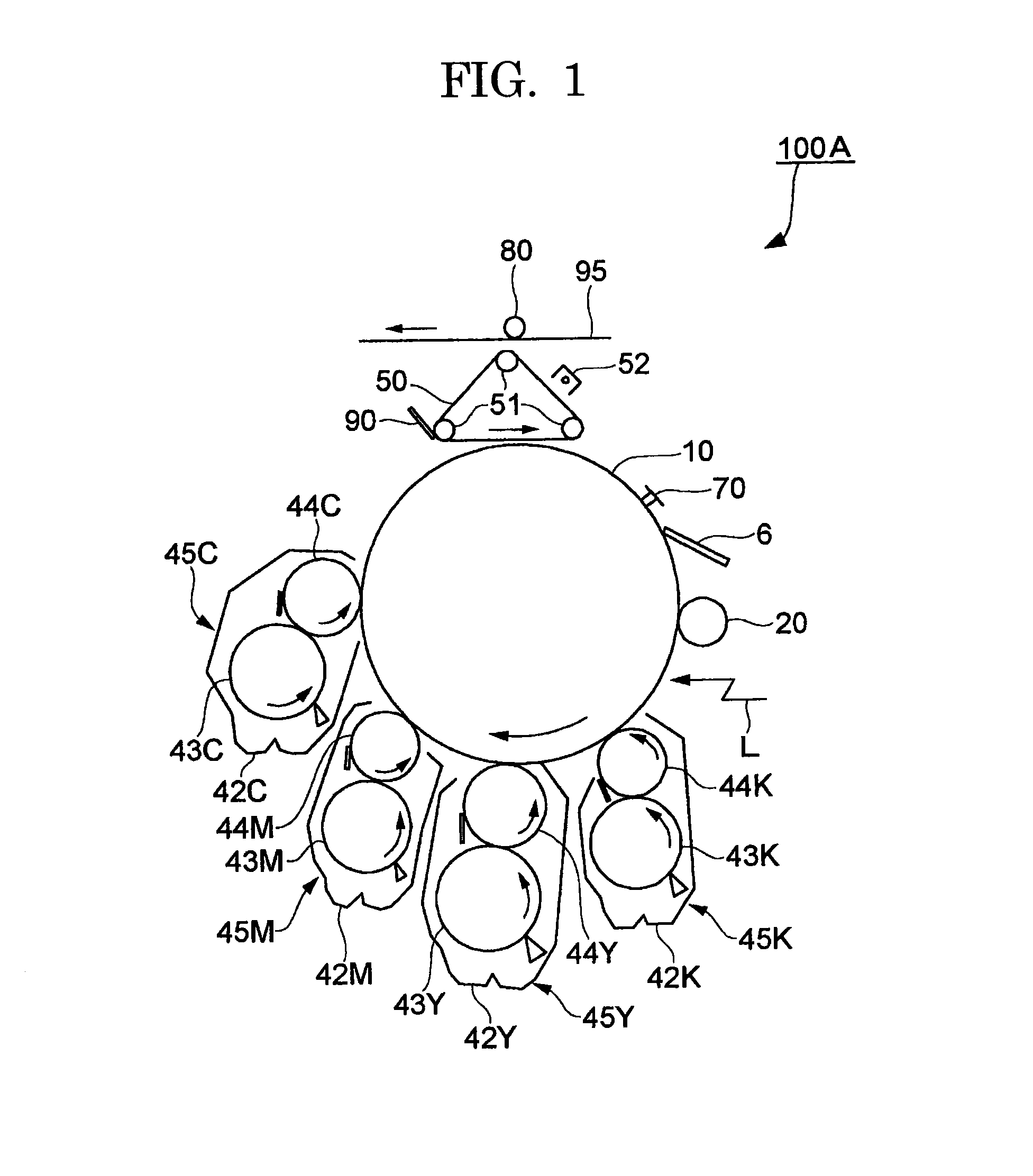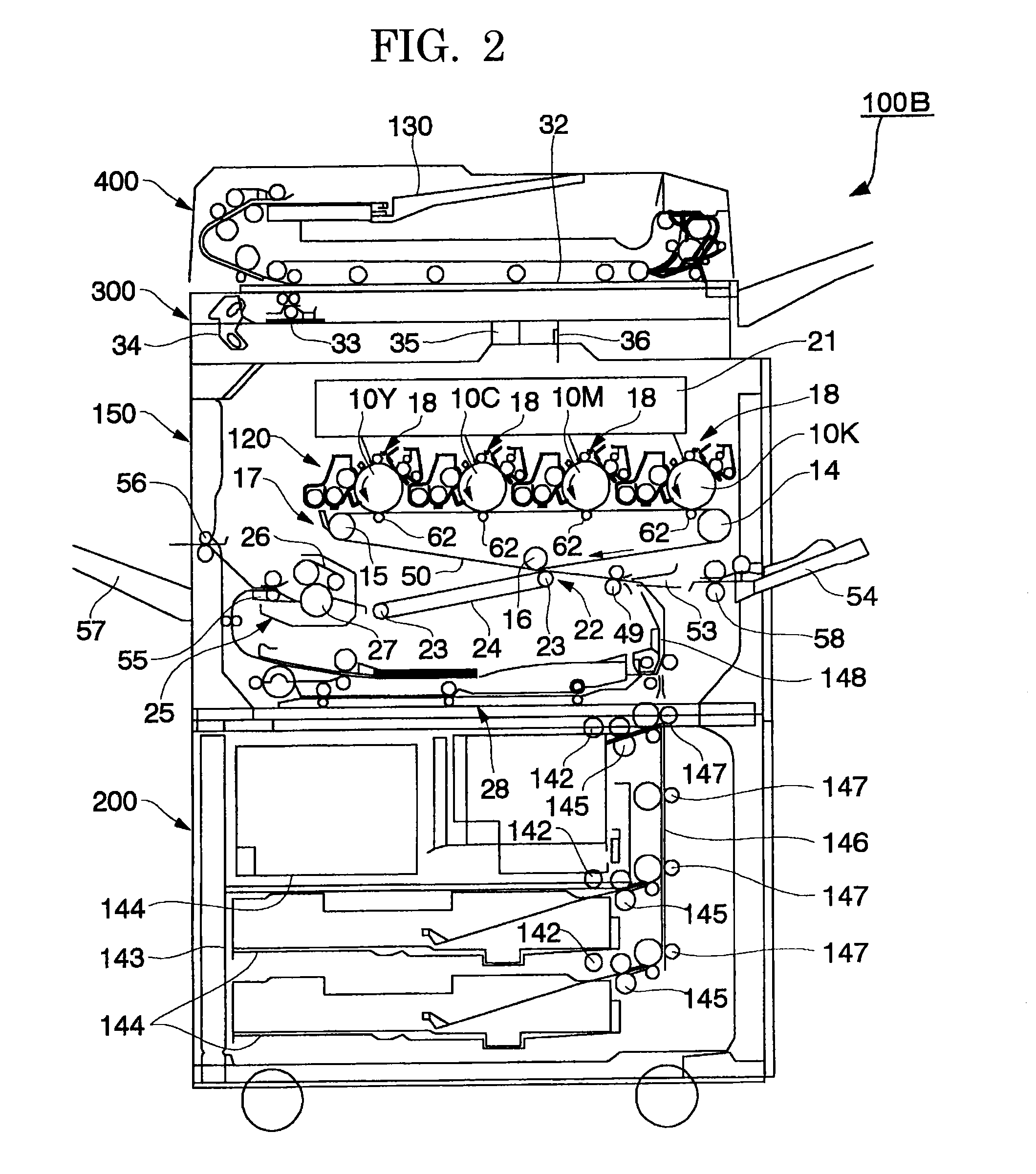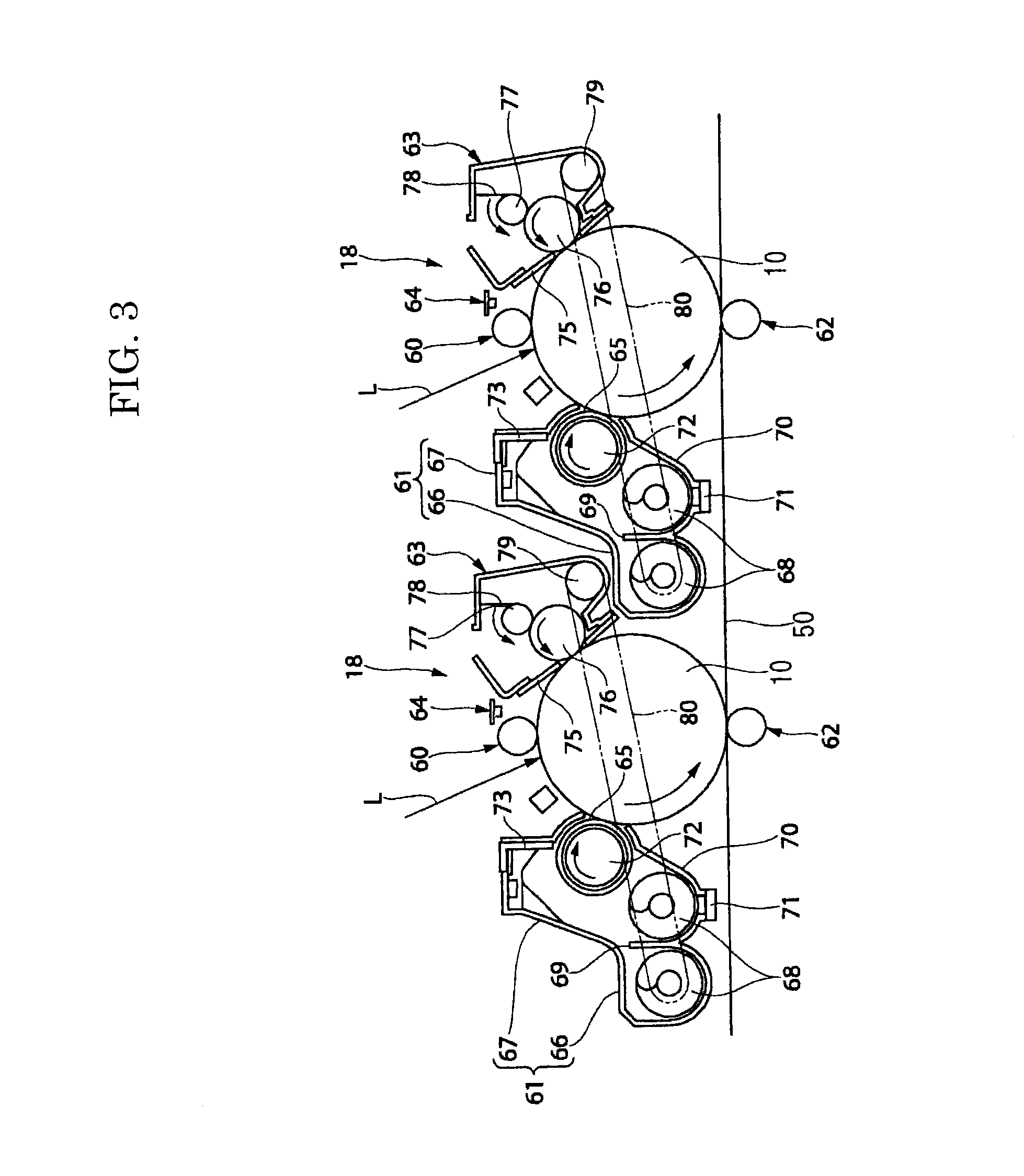Toner, developer, and image forming apparatus
a technology of toner and developer, applied in the field of toner, a developer, and an image forming apparatus, can solve the problems of high fixing energy required, disadvantageous presence of much of the wax on the toner surface, and insufficient output images, etc., and achieves high charging ability, low temperature fixing ability, and heat resistant storage stability.
- Summary
- Abstract
- Description
- Claims
- Application Information
AI Technical Summary
Benefits of technology
Problems solved by technology
Method used
Image
Examples
production example 1
Synthesis of Ketimine
[0369]A reaction container equipped with a stirring rod and a thermometer was charged with isophorone diisocyanate (170 parts) and methyl ethyl ketone (75 parts), followed by reaction at 50° C. for 5 hours, to thereby obtain [ketimine compound 1]. The amine value of the obtained [ketimine compound 1] was found to be 418.
production example a1
Synthesis of Non-Linear, Non-Crystalline Polyester Resin A1
—Synthesis of Prepolymer A1—
[0370]A reaction vessel equipped with a condenser, a stirring device, and a nitrogen-introducing tube was charged with 3-methyl-1,5-pentanediol, isophthalic acid, and adipic acid so that a ratio by mole of hydroxyl group to carboxyl group “OH / COOH” was 1.5. A diol component was composed of 100% by mole of 3-methyl-1,5-pentanediol, and a dicarboxylic acid component was composed of 40% by mole of isophthalic acid and 60% by mole of adipic acid. An amount of trimethylolpropane was added thereto so that the amount thereof was 1% by mole relative to the total amount of the monomers. Moreover, titanium tetraisopropoxide (1,000 ppm relative to the resin component) was added thereto. Thereafter, the resultant mixture was heated to 200° C. for about 4 hours, then was heated to 230° C. for 2 hours, and allowed to react until no flowing water was formed. Thereafter, the reaction mixture was allowed to furthe...
production example a2
Synthesis of Non-Linear, Non-Crystalline Polyester Resin A2
—Synthesis of Prepolymer A2—
[0374]A reaction vessel equipped with a condenser, a stirring device, and a nitrogen-introducing tube was charged with bisphenol A ethylene oxide 2 mole adduct, bisphenol A propylene oxide 3 mole adduct, isophthalic acid, and adipic acid, so that a ratio by mole of hydroxyl group to carboxyl group “OH / COOH” was 1.5. A diol component was composed of bisphenol A ethylene oxide 2 mole adduct and bisphenol A propylene oxide 3 mole adduct and a ratio by mole of the diol component (bisphenol A ethylene oxide 2 mole adduct / bisphenol A propylene oxide 3 mole adduct) was 80 / 20; and a dicarboxylic acid component was composed of 85% by mole of isophthalic acid and 15% by mole of adipic acid. An amount of the trimellitic anhydride was added thereto so that the amount thereof was 1% by mole relative to the total amount of the monomers. Moreover, titanium tetraisopropoxide (1,000 ppm relative to the resin compo...
PUM
| Property | Measurement | Unit |
|---|---|---|
| glass transition temperature | aaaaa | aaaaa |
| glass transition temperature | aaaaa | aaaaa |
| glass transition temperature | aaaaa | aaaaa |
Abstract
Description
Claims
Application Information
 Login to View More
Login to View More - R&D
- Intellectual Property
- Life Sciences
- Materials
- Tech Scout
- Unparalleled Data Quality
- Higher Quality Content
- 60% Fewer Hallucinations
Browse by: Latest US Patents, China's latest patents, Technical Efficacy Thesaurus, Application Domain, Technology Topic, Popular Technical Reports.
© 2025 PatSnap. All rights reserved.Legal|Privacy policy|Modern Slavery Act Transparency Statement|Sitemap|About US| Contact US: help@patsnap.com



